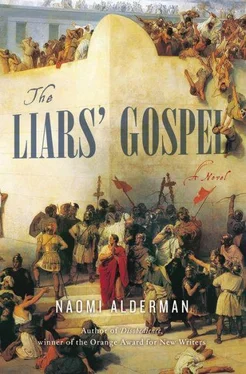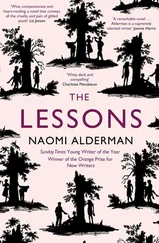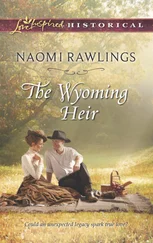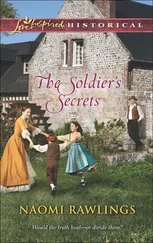She looked about. They must be in a stable, probably for a priest’s family so close to the Temple. It had that clean smell of horseflesh and dry straw. They were just beneath the window, which was shuttered, but she pressed her eye up against a chink in the wood. Arrows were flying in the square — one thudded into the thick shutter, and she thought: what if one were to hit my eye? — but she could not look away.
The slaughter was endless. The soldiers at the Hippodrome had lowered the metal gate to keep the attackers out. They had the upper ground now, looking down the steps on the mass of Jews running up towards them. They fired arrows through the grille and she saw twenty men brought down as she watched, pierced through the stomach, the chest, the groin. Near to her hiding place a man slumped with an arrow sticking out of his thigh. He tried to pull it out and screamed. He was young, she thought, maybe eighteen or nineteen. There was a sheen of sweat on his brow. He looked around for a safe place to shelter. What if he came here? What if he opened the door and they were discovered? And if the soldiers came, what then? Another arrow found his neck with a crunching snapping sound and he fell back, dead. God forgive her, she was grateful.
As she watched, the Jews, unable to sustain the heavy losses from the archers, fell back into the surrounding streets. The square in front of the Hippodrome was dark with bodies, and running red — Roman blood and Jewish blood, she thought. One of the soldiers was still moving, moaning. She wondered how long his comrades would leave him there. Her father was still breathing. She moistened his lips from her water skin. He licked them. It was a good sign. It would be dark in two or three hours — perhaps he would be able to move then.
She heard cheering from the street outside. Were the Romans celebrating their victory? But the noise intensified. Not a cheering. A rising again of the raging voices. The clash of arms. She put her eye to the shutter a second time. From the roofs of nearby houses, the Jews had raised ladders and ropes, and had hoisted themselves to the upper levels of the colonnade. From there, they had the upper ground and were throwing down rocks, bricks pulled from the structure itself. There were boys with their slingshots, hurling down missiles — the more the Roman soldiers looked up, the greater the danger to them. She saw one man smashed in the mouth with a brick, his upper lip gone, his teeth out and the whole center of his face pouring blood and gouts of flesh. The Romans tried to fight back at first — they sent their arrows upwards and even pulled some of the men down bodily, and set on them with swords, cleaving their limbs and heads from their torsos.
But the advantage of holding the higher ground was too great. The Romans withdrew, sheltering in the back of the colonnade. The center of the Hippodrome, Miryam could see, was piled with the bodies of the fallen. There was a great cheering from the Jews on top of the Hippodrome, a victory cry. Miryam could not see what the Romans were doing. The Jews atop the colonnade could not see either.
She turned back to her father. His lips were moving. She wet the sleeve of her dress in her water skin and dripped a few drops into his mouth. He swallowed. The stable was dark and cool. She leaned close to his lips.
He was whispering, “Run, Miryam, run to your uncle Elihu’s house. Run now.”
She looked outside again. The square was quiet. She saw a weeping woman walking at the edge find a particular corpse and kneel, cradling a head in her arms. If she were to run, this would be the time for it. But if she ran, and soldiers retreating from the Hippodrome found her father here, they would kill him. At least if she were here, a young girl, she could plead for him. She could not leave.
“The danger has passed, father,” she said, “the square is quiet. Rest, and when you are able to walk we will go together.”
“Run,” he kept saying, “run now.”
His fingers and his legs were cold. He was shivering. Crawling on the floor, she brought more sacks and covered him. The shivering diminished. He moved onto his side and began to breathe more slowly and evenly. He was sleeping — a true sleep, not a faint.
There was a sound from the square like the sound of trees being felled. A great cracking sound. She wondered if the Romans had brought battering rams. There was a low, rumbling roar, like the sea heard from far off. She put her eye to the shutter again.
The Romans had set the Hippodrome on fire. The bottom part of the structure was stone, but the upper floors and galleries, the parts where the Jews had climbed, were wood. And the wood was crackling flame, like the altar of the Temple, like the smell of the burning sacrifices, the wood was on fire.
She saw that a great host of men had retreated to the very roof of the Hippodrome, where the clay tiles were not yet aflame. But there was no way down. The ladders had burned and no building was near enough the Hippodrome to jump. They were going to burn to death there, on the flat roof of the building. Some of the men were clinging to each other and some were on their knees praying and some were shaking and tearing their clothes and hair. She saw one man take five paces back from the edge of the roof and run forward, as if trying to jump to the next, but it was too far and he fell to the stone floor and did not move again.
There were others who joined him soon enough, jumping from the roof to escape a death by flames. She saw some as the fire crept up the wooden structure draw their swords and fall on them. And some did not jump and did not take a blade to end their lives but waited or tried to climb down through the flames and their cries were the loudest and most anguished of all. She had heard it said that a man who died as a martyr to Rome would be rewarded by heaven. The growling, unquenchable fire sent bright sparks up to the skies and she remembered how the life of a lamb goes back to its maker while the flesh remains here on earth, but the cries were so loud that after a time she could not think of anything else.
The square between the stables and the Hippodrome was stone and marble. The flames did not extend across them. She watched through the night, ready to drag her father behind her if he could not move himself and the flames jumped to the buildings nearby. But they did not. The soldiers had made a neat job of it. And the rain, coming and going, helped a little. The fire burned out while it was still night, leaving just blackened stumps of wood poking up into the sky from the stone base. Before dawn the next morning, Miryam shook her father until he woke and, stumbling, dizzy, crawling sometimes, he came with her to the house of his brother Elihu.
They stayed in her uncle’s house then seventeen days, not daring to leave even to find food or to hear the news of what had passed in Jerusalem. They had the well, and wheat flour and dried fruit enough to live on, and her father grew stronger every day. He and her uncle agreed they must not go into the country — the Romans would be looking for anyone who fled Jerusalem, guilty or innocent. Anyone trying to leave the city would be branded a criminal and a traitor. Especially a man with fresh wounds showing.
When at last her father was well enough to attempt the long journey, and Elihu had made inquiries about the best time to attempt the gates and the best lies to tell there, they left. They went in the early morning. The soldiers at the Double Gate asked them what business they had and Miryam replied, as her father and uncle had schooled her, that they were citizens of Jerusalem, and she was betrothed to a boy from the north and they must attend the wedding or the dowry would be lost. The soldiers joshed among themselves and made bawdy jokes to her about her wedding night. She cast her eyes down and, tiring of the game at last, they let them go. It was only then that she saw what was to be seen.
Читать дальше












